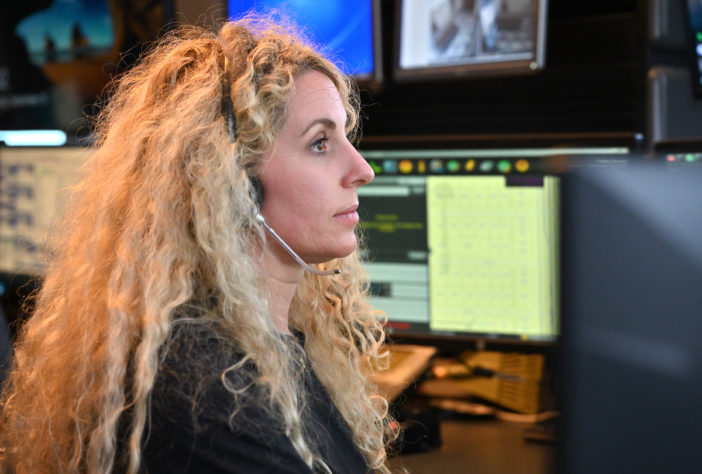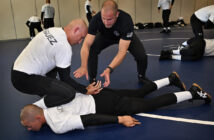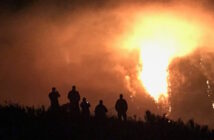“Think of it as a controlled chaos,” is one analogy Westminster Police Department Communication Supervisor Kristen Kannard uses to describe a day in the life of a police dispatcher.
Commonly referred to as 911 operators, public safety dispatchers are usually the first point of contact for any member of the public requesting the need for emergency services. Dispatchers are often referred to as the “first first responders,” Kannard said.
Westminster Police Department currently has 10 full time dispatchers and is looking to hire two more to get the pool back up to the allotted number of 12, Kannard said. The department typically has three dispatchers on duty at any given time.
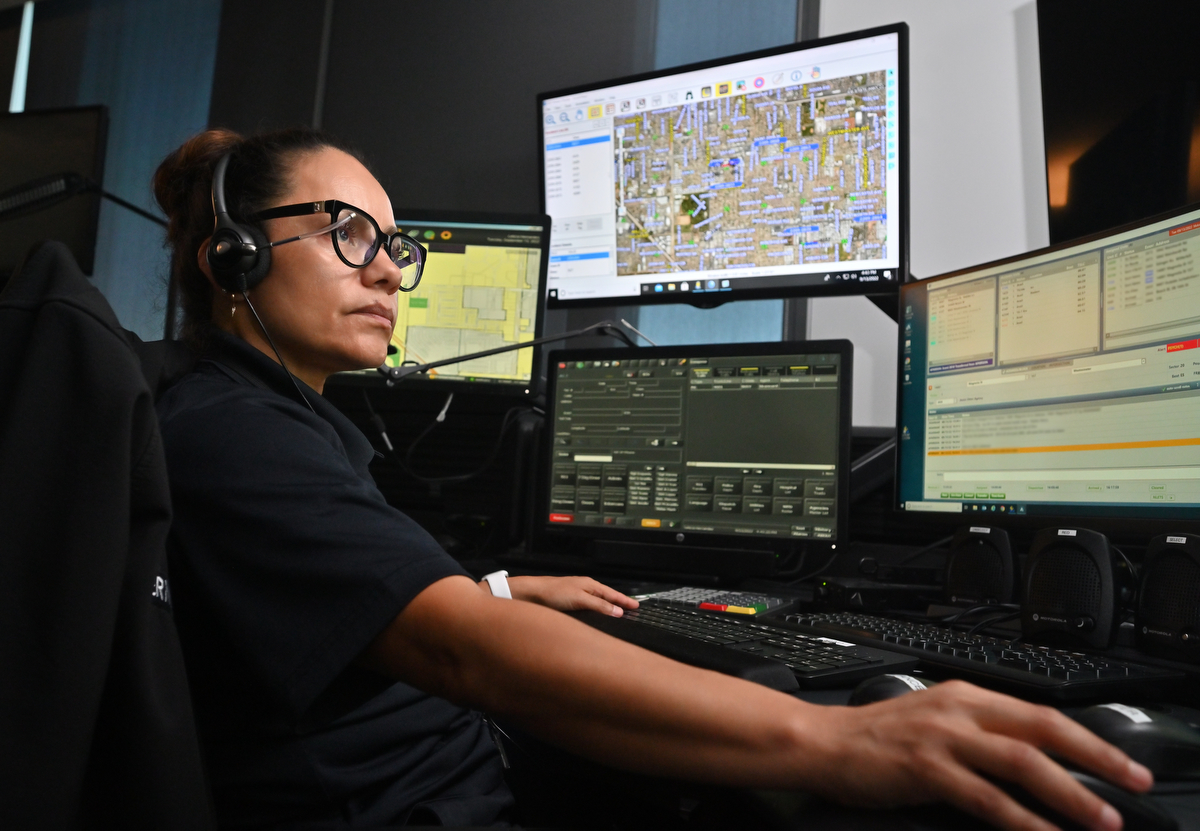
Leticia Hernandez is a dispatcher for the Westminster Police Department.
Photo by Steven Georges/Behind the Badge
A career as a dispatcher can be fulfilling and lucrative for a person with the right temperament and attitude, Kannard said.
“You have that passion and fire inside you that you want to help people, and you want to do it for more than the title and the money,” she said. “You want to make that difference. It should be a lifetime commitment.”
The ability to multitask is a requirement in several careers, but for 911 dispatchers, multitasking is taken to level beyond what most people can comprehend.
“You have to have patience,” Kannard said. “You have to be calm. You have to stay focused and have the mindset of the job at hand and try not to let things get to you. You have to talk, type, and listen and remember 100 things in such a short amount of time and be able to type and listen and answer phones and talk to your partners.”
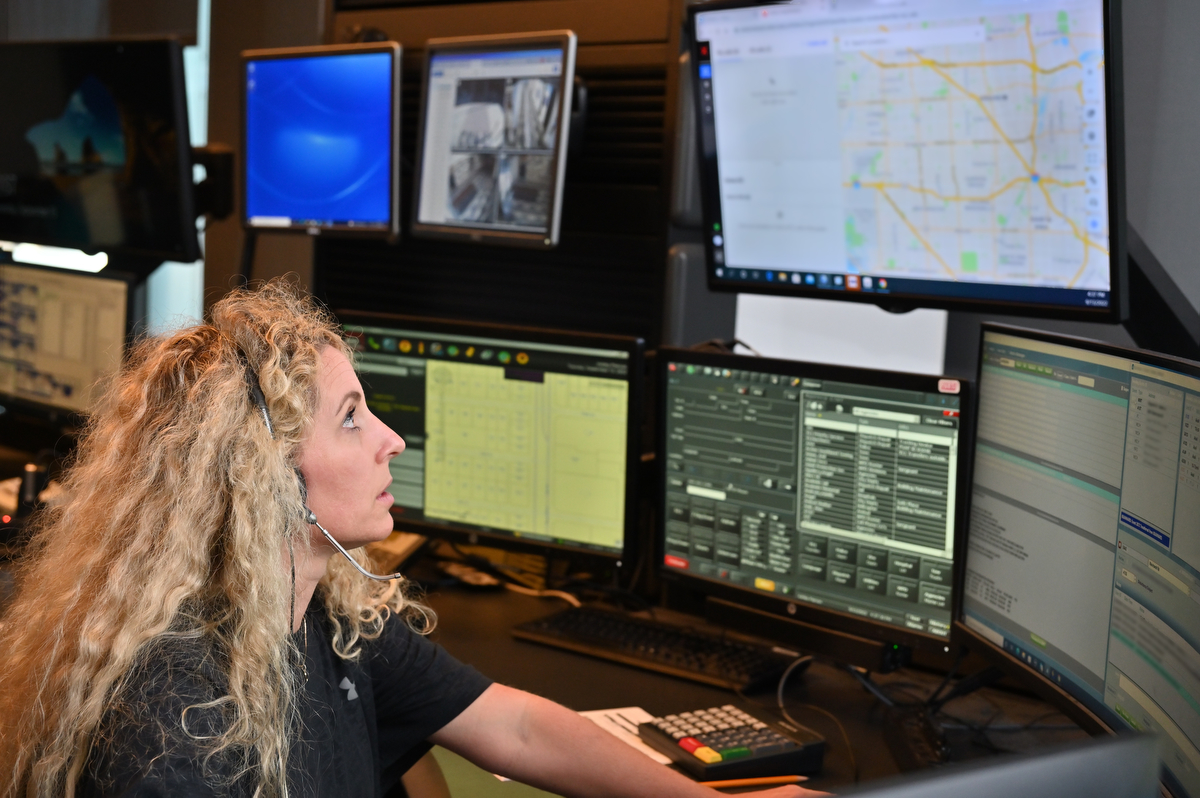
The ability to multitask is a requirement in several careers, but for 911 dispatchers, multitasking is taken to level beyond what most people can comprehend. Ashley Pierson, pictured, is a police dispatcher for Westminster Police Department.
Photo by Steven Georges/Behind the Badge
While the dispatcher is quickly trying to discover details about an emergency, they could also be monitoring multiple screens, tracking locations of patrol units, and dispatching officers to the right place.
“For the officers, you are their lifeline,” Kannard said. “You tell them where to go. You take information from them. You give them all the information that they need when they are en route. (Sometimes) it’s a matter of life and death.”
There are times when those calls come in rapid-fire succession, Kannard said.
Dispatchers are often dealing with frantic individuals who call for service and so dispatchers need the ability to de-escalate a situation, the ability to stay calm in high stress situations.
“They might be super excited,” Kannard said. “You have to be able to be that calm.”
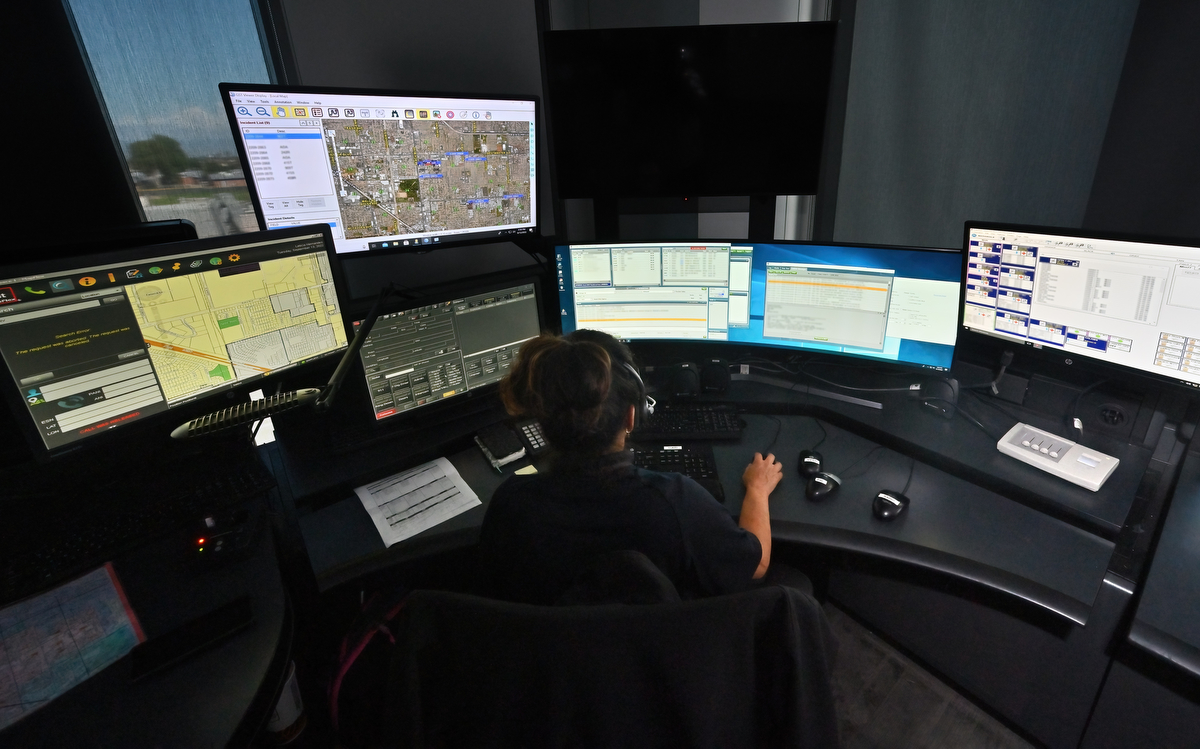
Leticia Hernandez, a dispatcher for Westminster Police Department, looks over the variety of information that allows her to do her job.
Photo by Steven Georges/Behind the Badge
Kannard, who is in her 18th year as a Westminster police dispatcher, the past two as a supervisor, was initially considering a career as an attorney before realizing how expensive law school was. Instead, she set out to pursue a career in law enforcement, starting out as a traffic officer for the Anaheim Police Department. Kannard came across an article about a day in the life of a dispatcher and knew right away the career was for her.
When you’re on the job long enough, virtually every dispatcher handles that one call that sticks with you forever, dispatchers say. For Kannard, that call came in 2009 and involved a woman who stabbed her 3- and 5-year old daughters and then herself. Both girls survived and the mother was later found guilty of attempted murder and child abuse and endangerment.
In a 2021 Behind the Badge article, Westminster Police Dispatcher Linette McCain recalled a call involving a boy who was severely burned by boiling water. The call came in from the boy’s mother as a request for medical aid.
The mother claimed the incident was an accident, but the longer McCain listened to what the woman was saying and how severe the burns were, she began to suspect that it was not an accident.
The officers on scene came across evidence that the burns weren’t accidental and took the father into custody. The baby survived and, nine months later, McCain was even able to meet and hold her.
“I just thought it was a cool way of being recognized for having that extra sense of something not being right,” she said.
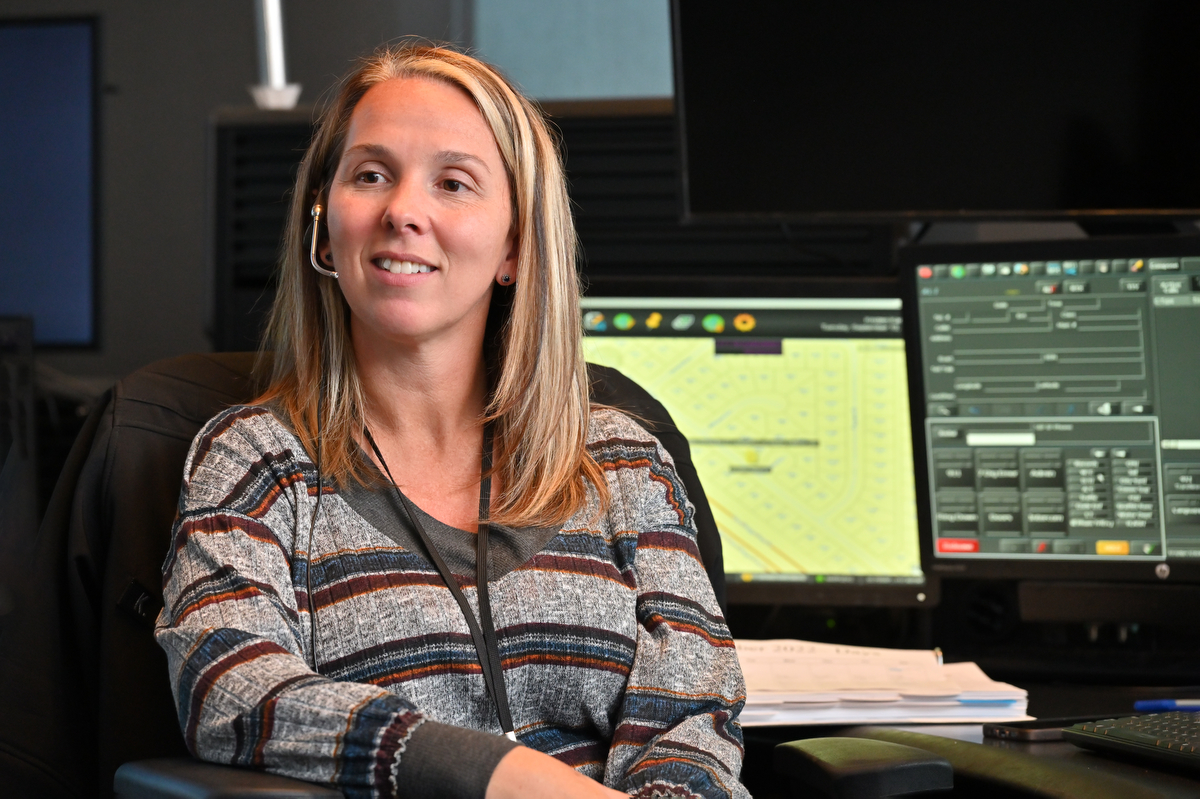
Westminster Police Dispatch Supervisor Kristen Kannard talks about her team.
Photo by Steven Georges/Behind the Badge
Training to become a dispatcher can take about nine months. Dispatchers must also be prepared to work nights, weekends and holidays.
There are opportunities for advancement, Kannard said. Dispatchers can become supervisors or work as a tactical dispatcher for SWAT, which requires the dispatcher to respond to the field for on-scene communication with responders.
No two days are alike for a dispatcher, Kannard said.
“Every day you get something different,” she said. “Some days you take so many calls for service that you honestly don’t even remember what calls you took. It kind of becomes a blur.”
When outcomes are positive, there is no better feeling, Kannard said.
“When we get the bad guy, when we find the missing child, when the elderly person comes home … Those are the good days,” she said.
Apply for a Westminster Police dispatcher position here: https://www.westminster-ca.gov/departments/police/admin/join-wpd.
 Behind the Badge
Behind the Badge
